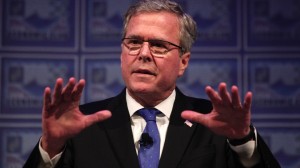During the 2004 presidential campaign, then-Senator John Kerry, who identifies as Catholic, offered his opinion about the relationship between Catholic doctrine and the scope of the Church’s authority when it published a document clearly explaining what the Church requires of Catholic politicians on the matter of same-sex unions.
The portion of the text, about which Kerry, as candidate for president, was particularly critical, reads:
If it is true that all Catholics are obliged to oppose the legal recognition of homosexual unions, Catholic politicians are obliged to do so in a particular way, in keeping with their responsibility as politicians. Faced with legislative proposals in favour of homosexual unions, Catholic politicians are to take account of the following ethical indications.
When legislation in favour of the recognition of homosexual unions is proposed for the first time in a legislative assembly, the Catholic law-maker has a moral duty to express his opposition clearly and publicly and to vote against it. To vote in favour of a law so harmful to the common good is gravely immoral.
When legislation in favour of the recognition of homosexual unions is already in force, the Catholic politician must oppose it in the ways that are possible for him and make his opposition known; it is his duty to witness to the truth.
According to published reports, in criticizing these requirements, Kerry also said: “it is important not to have the Church instructing politicians.” He also said that the document “is an inappropriate crossing of the line in this country. President Kennedy drew that line very clearly in 1960 and I believe we need to stand up for that line today. . . .Our founding fathers separated church and state in America. It is an important separation. It is part of what makes America different and special, and we need to honor that as we go forward and I’m going to fight to do that.”
Fast forward to 2015. In Pope Francis’ encyclical on the environment, Laudato Si, the pontiff writes, “a number of scientific studies indicate that most global warming in recent decades is due to the great concentration of greenhouse gases (carbon dioxide, methane, nitrogen oxides and others) released mainly as a result of human activity.”
When asked about the encyclical, Republican presidential hopeful, Governor Jeb Bush (who, like me, has yet to read the document in its entirety), said: “I hope I’m not going to get castigated for saying this by my priest back home, but I don’t get economic policy from my bishops or my cardinals or my pope.”
He also said, “And I’d like to see what he says as it relates to climate change and how that connects to these broader, deeper issue before I pass judgment. But I think religion ought to be about making us better as people and less about things that end up getting in the political realm.”
In other words, to quote cradle-Catholic Kerry, “it is important not to have the church instructing politicians.” For to do so is “an inappropriate crossing of the line in this country.”
There is, of course, nothing wrong with any Catholic, even a politician, respectfully raising questions about papal pronouncements, especially when those pronouncements venture into areas in which the occupant of Peter’s Chair has no expertise. However, the principle that candidate Bush advances is not merely affirming that mundane truth. He is in fact saying something at a much higher level of abstraction: that the concerns of politics are not the concerns of religion, which is indistinguishable from what candidate Kerry said in 2004.
But Bush’s principle is palpably false. Politics concerns the care of the community, which consists of human beings made in the image of God. For this reason, the Church has not only constructed houses of worship, but has created everything from schools, hospitals, orphanages, charitable institutions, and countless orders of religious that help carry out these missions.
Is candidate Bush really promising that under his presidential administration he would order the federal government to stay completely out of all these Catholic projects and let them flourish free of any state oversight? Has he discussed this with anyone at HHS, the IRS, the EPA, the DOE, or the EEOC recently?
What is even more stunning about candidate Bush’s assertion is that he, like candidate Kerry, treats the Vicar of Christ, not as one to whom he owes obedience, but rather as a religious pundit whose suggestions he is free to discard if he finds them politically inconvenient. But if religion is about “making us better as people,” as candidate Bush affirms, and if one’s religion requires obedience to its Magisterium, is not candidate Bush, by his reluctance to obey, denying himself an opportunity to improve his own character?
Perhaps there is a reason why the author of Psalms warned us: “Do not put your trust in princes, in mortals, in whom there is no help.” (146:3 -NRSV)
















